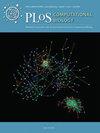二项式模型揭示基于液滴的单细胞 RNA 测序特征选择过程中的生物变异。
IF 3.8
2区 生物学
Q1 BIOCHEMICAL RESEARCH METHODS
PLoS Computational Biology
Pub Date : 2024-09-06
eCollection Date: 2024-09-01
DOI:10.1371/journal.pcbi.1012386
引用次数: 0
摘要
有效分析单细胞 RNA 测序(scRNA-seq)数据需要严格区分技术噪声和生物变异。在这项工作中,我们提出了一个简单的特征选择模型,称为 "差异分布基因"(Differentially Distributed Genes)或 DDGs,其中每个 mRNA 物种的二项式采样过程会产生一个技术变异的空模型。利用事先确定了细胞身份的 scRNA-seq 数据,我们发现 DDG 生物变异模型优于现有方法。我们证明了 DDGs 能区分一组经过验证的真实生物变异基因,最大程度地减少邻域失真,并能准确地将细胞划分到既定的细胞类型组中。本文章由计算机程序翻译,如有差异,请以英文原文为准。
Binomial models uncover biological variation during feature selection of droplet-based single-cell RNA sequencing.
Effective analysis of single-cell RNA sequencing (scRNA-seq) data requires a rigorous distinction between technical noise and biological variation. In this work, we propose a simple feature selection model, termed "Differentially Distributed Genes" or DDGs, where a binomial sampling process for each mRNA species produces a null model of technical variation. Using scRNA-seq data where cell identities have been established a priori, we find that the DDG model of biological variation outperforms existing methods. We demonstrate that DDGs distinguish a validated set of real biologically varying genes, minimize neighborhood distortion, and enable accurate partitioning of cells into their established cell-type groups.
求助全文
通过发布文献求助,成功后即可免费获取论文全文。
去求助
来源期刊

PLoS Computational Biology
BIOCHEMICAL RESEARCH METHODS-MATHEMATICAL & COMPUTATIONAL BIOLOGY
CiteScore
7.10
自引率
4.70%
发文量
820
审稿时长
2.5 months
期刊介绍:
PLOS Computational Biology features works of exceptional significance that further our understanding of living systems at all scales—from molecules and cells, to patient populations and ecosystems—through the application of computational methods. Readers include life and computational scientists, who can take the important findings presented here to the next level of discovery.
Research articles must be declared as belonging to a relevant section. More information about the sections can be found in the submission guidelines.
Research articles should model aspects of biological systems, demonstrate both methodological and scientific novelty, and provide profound new biological insights.
Generally, reliability and significance of biological discovery through computation should be validated and enriched by experimental studies. Inclusion of experimental validation is not required for publication, but should be referenced where possible. Inclusion of experimental validation of a modest biological discovery through computation does not render a manuscript suitable for PLOS Computational Biology.
Research articles specifically designated as Methods papers should describe outstanding methods of exceptional importance that have been shown, or have the promise to provide new biological insights. The method must already be widely adopted, or have the promise of wide adoption by a broad community of users. Enhancements to existing published methods will only be considered if those enhancements bring exceptional new capabilities.
 求助内容:
求助内容: 应助结果提醒方式:
应助结果提醒方式:


